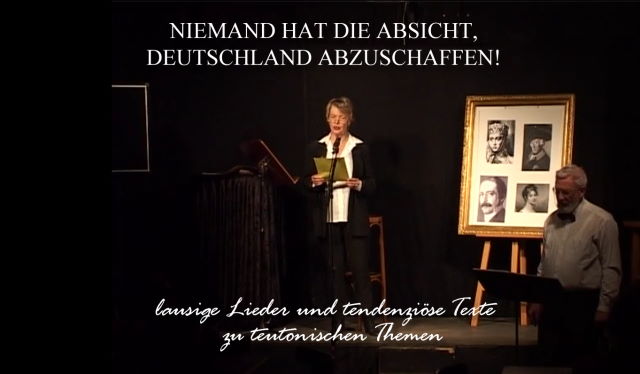-
By the fact that the sovereign Reich-Germans Mahler, Oberlercher and Meenen are appearing in Berlin before a Grand Division of the Reich- and Folk-destruction regime FRG (which exists in breach of the ius gentium), Mahler, Oberlercher and Meenen are giving way solely to force.
-
§ 130 FRG-StGB (Penal Code) against "incitement of the People" is a classic case of a legal injustice in the sense of Gustav Radbruch. Whilst § 130 of the Reich-StGB is indeed aimed against incitement of the People, i.e. against the incitement of parts of the People against other parts, and is also necessary in order to dampen the class struggles and distribution struggles within the German People, the § 130 of the FRG-StGB serves the enforced defencelessness of the German People against the grievous war crime of the occupation of the land remaining to Germany with foreign and alien civilians. This paragraph is the FRG's main instrument of suppressing the German national movement, the Reich-Germans and their wards.
-
Courts that make use of the legal injustice of § 130 FRG-StGB when opening the proceedings have already perverted the course of justice, and they repeat this perversion of the course of justice if they base their verdict on this paragraph – irrespective of whether they convict or acquit.
-
In consideration of the fact that the judges in Berlin are also Germans, and as such victims of the Judeo-American system of foreign rule, the Deutsches Kolleg will, as thought-organ of the German Reich, patiently explain these matters to them. The Deutsches Kolleg will honour the termination of the proceedings by the court as active regret which makes punishment unnecessary, and will refrain from pressing charges against the court at the Reich Inquiry Office for perversion of the course of justice.











